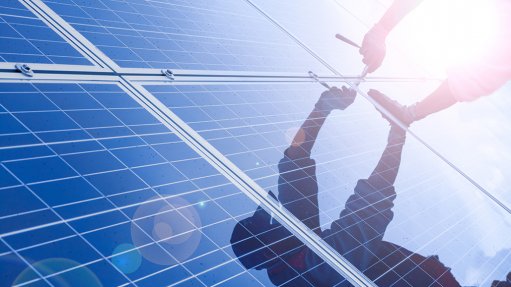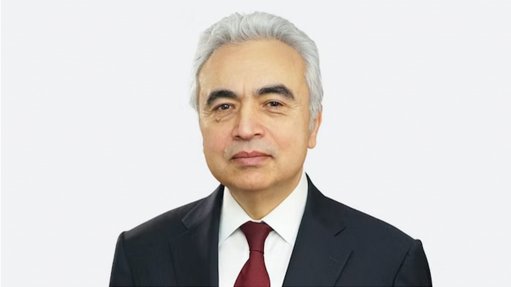SA’s infrastructure second in sub-Saharan Africa
This year, South Africa ranked second in logistics solutions provider DHL’s yearly Global Connectedness Index (GCI) report, which analyses the state of globalisation and connectedness levels, based on the international flows of trade, capital, information and people in sub-Saharan Africa.
This illustrates South Africa’s high standard of logistics, compared with other African countries, notes DHL MD Hennie Heymans. However, he highlights that South Africa ranks only forty-eighth globally and, therefore, needs much improvement.
“The high ranking within the sub-Saharan Africa region is positive for the country’s growth, as the levels of connectivity and prosperity across Africa are strongly linked. The benefits of expanding merchandise trade are substantial and the gains from services trade and other cross-border flows are responsible for an estimated 8% of global gross domestic product (GDP),” he says.
The GCI also states that South Africa exported goods worth 24% of its GDP and exported services worth 4% of its GDP in 2012. Only 16% of South Africa’s merchandise exports went to destinations within the sub-Saharan Africa region, reflecting a worrying trend in the region as intra-Africa trade continues to lag, says Heymans.
Logistics is a key part of this trend, as it is not easy to ensure that business conducted across borders runs smoothly and products are moved freely.
Heymans stresses that the lack of infrastructure in sub-Saharan Africa is affecting the viability of mining projects, primarily because mining and energy projects are usually located in remote areas, which historically do not have infrastructure, such as roads, or connectivity.
“Logistics is a key part of the mining industry, as it supports new capital projects and exploration, as well as storing, packaging, handling and the distribution of final products. Therefore, a lack of infrastructure or poorly managed supply chain processes will have a major impact on the viability of a project or the financial sustainability of a mining corporation,” Heymans explains.
He notes that mining operations have unique challenges. “Whether it is oil, sands, coal, uranium or minerals mining, sources are becoming more remote and difficult to access, with high operating costs and low levels of labour availability. As a result, transporting the extracted product is expensive.”
Mining operations are also under constant pressure to increase profitability, particularly when fluctuations in the economic environment are experienced.
“DHL can assist in consolidating the supply chain to increase asset use and better material availability, resulting in higher uptime for equipment and operations and improved productivity for a mining company’s teams. The company can manage third-party logistics transporters or provide outsourced freight solutions, thereby providing cost-effective choices for increasing the movement of extracted materials to processing plants, ports and beyond,” states Heymans.
Subsequently, he notes that, while government can always do more to improve local infrastructure, certain projects, such as the South African Revenue Service’s Modernisation Programme for Customs, which is showing great results and progress and the e-toll project, which will assist South Africa in overcoming congestion in Gauteng, have proved beneficial for South Africa.
“However, more cooperation is needed regarding the ease of doing business across borders in Africa and working towards regional trade agreements, customs improvements and border efficiencies.”
“A continued investment in infrastructure to facilitate the flow of goods and a focus on the country’s labour environment are also needed,” says Heymans, pointing out that labour costs are high and that strikes directly affect companies’ bottom lines and South Africa’s attractiveness as an investment and business destination.
He highlights that ongoing fuel hikes in South Africa result in increased road and delivery costs. Over the past ten years, the fuel price has, on average, increased by 11% each year, which is far above the official inflation rate of 6%.
Therefore, DHL aims to improve the driving habits of its drivers and encourage intelligent driving behaviour; consider alternative fuel options, such as diesel or liquefied petroleum gas; and use intelligent route mapping and planning.
Heymans adds that road congestion is a major concern in Africa and that South Africa is no different. “In the express transport industry, time is money and documents and parcels are often time sensitive and urgent.
“Traffic congestion is for the most part a noncontrollable factor in the delivery process and, when our promise is to deliver a shipment on time, this can erode our reputation when we don’t deliver on time,” he notes.
Heymans further points out that South Africa’s rail infrastructure, while not on par with a good number of countries worldwide, does enjoy better connectivity than most sub-Saharan Africa countries.
“However, there is no doubt that road trans- port is growing and that the country has a disproportionate split between rail and road, with more freight carried on South African roads.”
He does not believe South Africa has the most efficient rail infrastructure or operating processes for these materials, which is why they are transported by road. “This situation needs urgent review and is currently being addressed by Transnet through its rail and road improvement projects,” concludes Heymans.
Comments
Press Office
Announcements
What's On
Subscribe to improve your user experience...
Option 1 (equivalent of R125 a month):
Receive a weekly copy of Creamer Media's Engineering News & Mining Weekly magazine
(print copy for those in South Africa and e-magazine for those outside of South Africa)
Receive daily email newsletters
Access to full search results
Access archive of magazine back copies
Access to Projects in Progress
Access to ONE Research Report of your choice in PDF format
Option 2 (equivalent of R375 a month):
All benefits from Option 1
PLUS
Access to Creamer Media's Research Channel Africa for ALL Research Reports, in PDF format, on various industrial and mining sectors
including Electricity; Water; Energy Transition; Hydrogen; Roads, Rail and Ports; Coal; Gold; Platinum; Battery Metals; etc.
Already a subscriber?
Forgotten your password?
Receive weekly copy of Creamer Media's Engineering News & Mining Weekly magazine (print copy for those in South Africa and e-magazine for those outside of South Africa)
➕
Recieve daily email newsletters
➕
Access to full search results
➕
Access archive of magazine back copies
➕
Access to Projects in Progress
➕
Access to ONE Research Report of your choice in PDF format
RESEARCH CHANNEL AFRICA
R4500 (equivalent of R375 a month)
SUBSCRIBEAll benefits from Option 1
➕
Access to Creamer Media's Research Channel Africa for ALL Research Reports on various industrial and mining sectors, in PDF format, including on:
Electricity
➕
Water
➕
Energy Transition
➕
Hydrogen
➕
Roads, Rail and Ports
➕
Coal
➕
Gold
➕
Platinum
➕
Battery Metals
➕
etc.
Receive all benefits from Option 1 or Option 2 delivered to numerous people at your company
➕
Multiple User names and Passwords for simultaneous log-ins
➕
Intranet integration access to all in your organisation


















